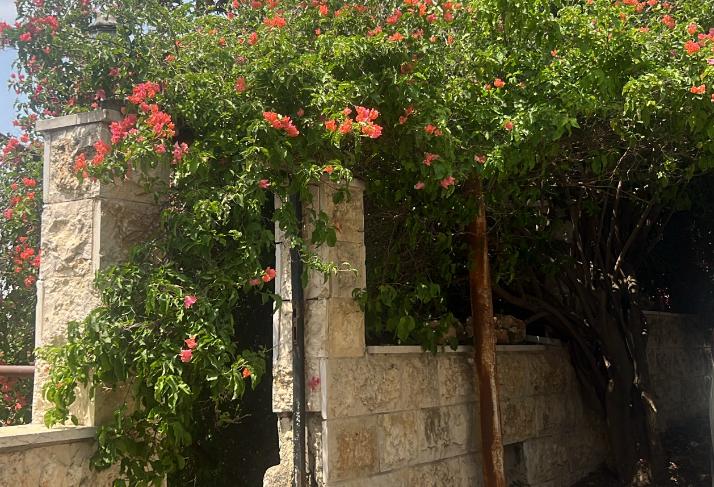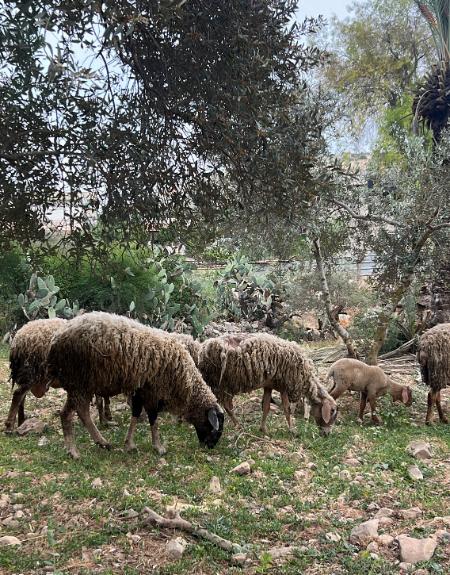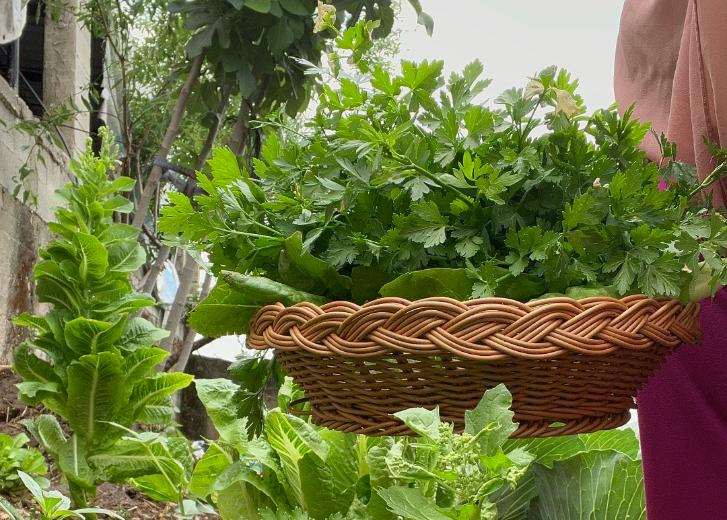‘All I want is to live peacefully with my family in our small village’


I grew up in a small village in the West Bank that has been facing lots of struggles because of the Israeli occupation. Since Oct. 7, everything has taken a turn for the worse. The fear of random violence is slowly consuming us.
Our roads are filled with checkpoints and soldiers carrying large weapons. Whenever we want to leave our house we hesitate multiple times before making the decision to go out, because a journey that should take ten minutes ends up taking five hours.
For example, last week we decided to visit our grandpa in a Palestinian town southwest of Ramallah in the central West Bank. It is ten minutes away from our village. But the journey took us two hours because of the checkpoints where the soldiers stopped us without any reason just because they wanted to control us.

We waited for hours in the sun. After that, they searched the car and searched our clothes and phones. When we reached our grandpa’s house, my parents told us that we had to leave in two hours, before sunset, because it is too dangerous to go out during the night. At night there is the danger that settlers may attack us.
Moreover, under the protection of the army, settlers prevent us from going to the outskirts of our village, which is our only escape for leisure especially during this recent war. Consequently, anyone who goes to the outskirts of the village risks being shot or, if they are lucky, arrested. Our friend, Rafar, was shot dead by a settler when he went to the outskirts of his village for a breath of fresh air.
Last week, settlers, under the protection of the army, attacked most of the houses in our village and shot some young men and women. They claimed that they shot them by accident. That is what they always say.
Al Mugher is a Palestinian village in the Ramallah and Al-Bireh Governorate in the northern West Bank. Last week, settlers burned the houses in the village and also burned cars and farms. They also stole the people’s animals and possessions.
In addition, settlers breed wild boar and release them into villages close to settlements, causing destruction to vegetable gardens, also killing children and preventing them from playing outdoors. Last year, wild boar attacked a young woman with her three daughters. After three hours, some people found them bleeding on the ground and took them to Salfeet Hospital. Fortunately, they recovered after the experience.
That is just one of a million stories about our struggle with wild boars. This has been our daily reality in the West Bank since 1948.
Every day, I ask myself the same questions: What will happen next? What should our next step be? Will we survive? Will we be able to remain in our beautiful home? But there are no answers because nobody knows what the future holds. The whole world, except the Arab countries, seems to be standing with Israel.
All I know is that I don’t want to lose any more family members. I want them to be safe and have the right to live peacefully in the land which we inherited from our ancestors. That’s all I want — to live peacefully with my family in our small village.

Sometimes I feel a sense of dread that the settlers will force us to leave our home and will steal our house and land. This has happened in some neighbouring villages. This happened in the village of Lifta in 1948. Lifta was a Palestinian Arab village on the outskirts of Jerusalem. It was depopulated at the beginning of the 1947-1948 civil war in Mandatory Palestine.
All these stories cause the fear to grow in me, especially because I love our home so much. We built every part of our home together step by step with our own hands.
I also fear the loss of the love of our neighbors and relatives if the occupation forces us to leave this place. All of these fears attack me every night.
Ultimately, despite the challenges we face, life in the West Bank is still better than life in Gaza. At least we have a warm home with some good food that we grow in our garden, such as cucumber, tomatoes, lettuce, grapes, onions, mint, cabbage, carrots, and other kinds of fruits and vegetables.














